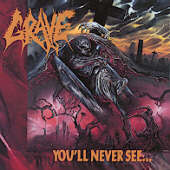Timo Tolkki - Official Website
You'll Never See… |
Finland
 |
|---|

Type: Full-Length
Release Date: May 27th, 1992
Label: Century Media Records
Genre: Pagan, Viking
